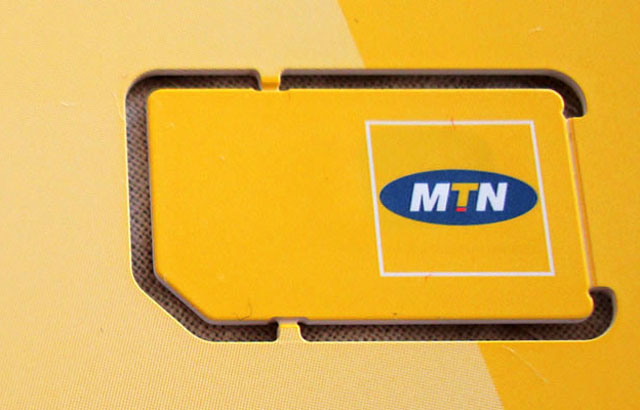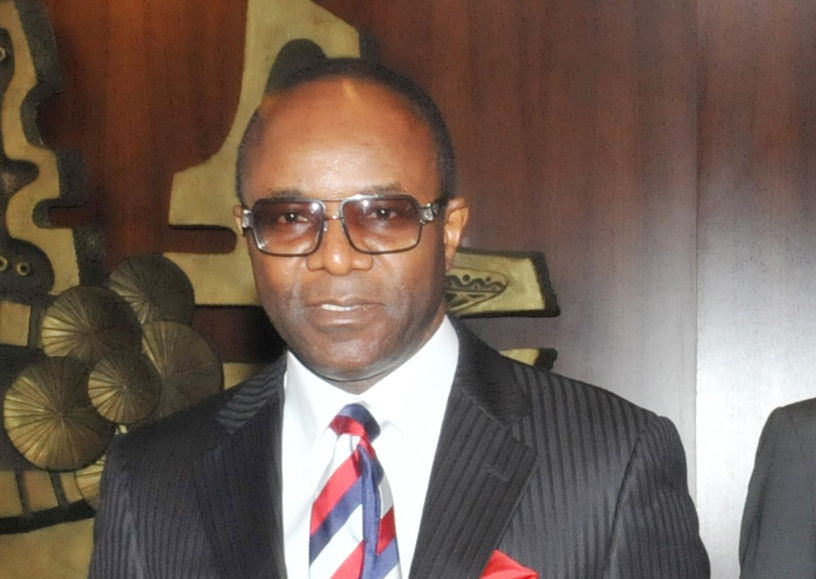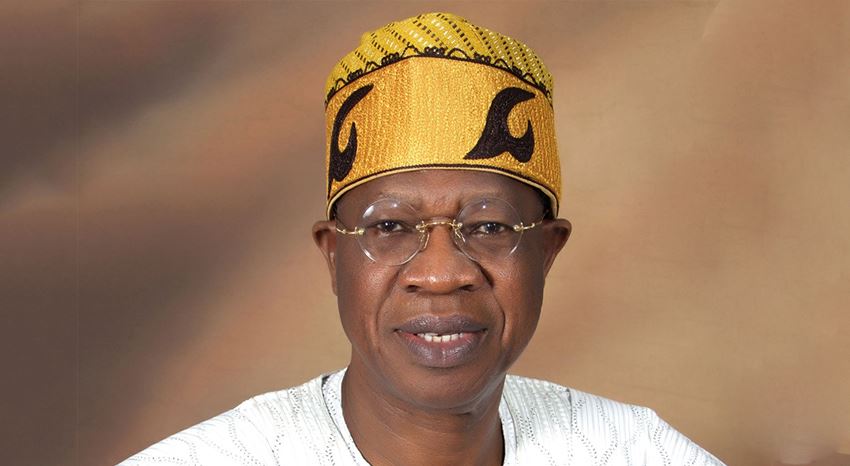When on October 22 this year the National Communications Commission (NCC) imposed an unprecedented fine of $5.2 billion (N1.04trn) on the Mobile Telecommunication of Nigeria (MTN), I was one of the people who felt that it was too severe a punishment even when I agreed that what the company did was indefensible. My position was premised on two factors: One, such a sanction should not be seen as a way to generate revenues because it would demean our country; and two, there are many Nigerians working in MTN and we should not endanger their jobs.
However, nobody can dispute the fact that MTN committed a serious infraction. The sanction was imposed because the company serially violated the NCC directive on the 5.2 million subscribers with unregistered SIMs and incomplete registration details on its network that were supposed to have been cleaned out, thereby infringing on a regulation validly made four years ago and, more importantly, endangering our national security.
Notwithstanding, I felt that there would be negotiations at some point to reduce the fine since the essence of it was not to cripple the company. As a first step in that direction, the then Group CEO, Mr. Sifiso Dabengwa, led a powerful team from South Africa, to engage with the Federal Government. Dabengwa, who had served as CEO of MTN Nigeria between 2004 and 2006, met with the NCC Executive Vice Chairman, Umaru Garba Danbatta, Secretary to the Government of the Federation, Mr. Babachir David Lawal, Inspector General of Police, Mr Solomon Arase, Director General of the State Security Service, Mr Lawal Musa Daura, National Security Adviser (NSA), Major-General Babagana Monguno (rtd.) and Chief of Staff to the President, Mallam Abba Kyari.
I also have it on good authority that aside making verbal pleas for leniency, MTN wrote letters to admit the charges against the company with promise of good behaviour going forward. At some point, a 25 percent reduction in the fine was agreed. Even at that, I felt that the fine was still too high and my expectation was that the company would pay some amount to show good faith and then begin further negotiations with the federal government. What the developments suggested was that MTN, as a responsible corporate citizen, understood the implications of what it did and was ready to cooperate with Nigerian authorities with a view to finding a common ground. But the next thing we heard was that MTN has gone to court on some spurious technical grounds.
Advertisement
Baffled as to why MTN would choose to fight when it was clearly in the wrong and had admitted as much officially in writing, a senior official at the presidency said the company was misadvised into believing that it is cheaper to hire many senior Nigerian lawyers who would use the court process to frustrate the government and wear out the administration than pay the fine. But from what I understand, it may be counter-productive on the part of the company to imagine it could use our courts to circumvent justice after breaking our law. I also believe MTN is misreading the mood of the Buhari administration on an issue in which a national consensus seems to be emerging.
After a recent meeting in Abuja, the Nigerian Governors Forum (NGF) in a communique signed by their Chairman, Abdul’aziz Yari of Zamfara State, said “MTN has accepted that they committed the offence and has apologised, and they are looking for leniency”. The governors, however, added that “we, the governors forum, decided to support the NCC…and the laws of our land do not give leniency to deliberate offence to our nation.”
Even for people like me who are sympathetic to MTN and still believe the fine should be further reduced, the sequence of events reveals very clearly that MTN has scant regards not only for our laws but for our country, a very supercilious and irresponsible attitude they would dare not exhibit in South Africa. It all dates back to the 1st of May 2010, when the NSA office, in collaboration with other security agencies and the NCC, mandated telecoms operators to start collecting biometric personal information.
Advertisement
While this should be a simple matter, MTN perhaps took a cue from the NCC management at the time that turned the exercise into another racket. That was after collecting, in March 2011, a needless sum of N6.1 billion from the federal government before flagging-off the process and giving a period of six months within which operators were expected to comply.
At that period, NCC had recruited seven consultants and tasked them with the responsibility of carrying out the SIM card registration exercise within the timeframe. Eventually, the consultants (SW Global, PNN, Chams, JKK, DatagroupIT, Eagle/CBC and E-Kenneth/SageMetrics) were withdrawn because they did not have a synchronised software solution that could detect double registration. With that, we wasted a whopping sum of N6.1 billion.
A year later on 7th November 2011, the SIM Registration Regulations came into force. Section 19 of the regulation stipulates a fine of N200, 000 to a telecoms company for failure to deactivate any SIM Card without proper registration details. And following the expiration of an initial grace period, the NCC mandated all operators to deactivate all unregistered existing SIM cards on their networks by the 30th of June 2013. By November of the same year, telecoms operators were directed to fully bar any newly registered SIM card which failed to perform a voice or data communication within 48 hours after its registration.
In September 2014, the NCC shared with the operators details of registrations records that the commission judged as invalid on its system, directing them to clean up their records through deactivation within a 30-day period. Again, on 8th July 2015, NCC directed operators to deactivate all the SIM cards registered but without a record of activity within a period of 21 days.
Advertisement
On 4th August, 2015, the operators, representatives of the security agencies and the NCC held a meeting to discuss issues around SIM registration and how it had become a serious threat to national security. At the end of the meeting, a final directive was issued to the telecoms operators to deactivate all SIM cards with improper/invalid registration details by 11th August 2015.
A week after the deadline, the NCC and the security agencies conducted a compliance audit where it was discovered that MTN had made little or no effort to deactivate its unregistered lines while other operators had largely complied. That development necessitated another meeting, this time at the Villa. Chaired by the Chief of Staff to the President, it was attended by heads of security agencies and CEOs of the telecoms companies who were warned that continued non-compliance would lead to the imposition of penalties of N200, 000 per each improperly registered SIM card in line with the extant law.
Again, while all the other operators ensured that the directive was carried out, MTN made some feeble attempts to bar unregistered subscribers in selected areas and only over a few days in September 2015 before it discarded the exercise, apparently believing, like it was in the past, that nothing would happen. The rest, as they say, is history.
Now that the company has decided to go to court after admitting its guilt in writing to the presidency, I hope the MTN is aware that the company is dealing with an administration it cannot easily compromise or bamboozle. And the blackmail of “chasing away foreign investors” would just not work, considering the issues involved. Besides, it may well be that what MTN did on SIM registration was perfectly in character.
Advertisement
I have it on good authority that so many other things have come up about MTN operations in Nigeria and the manner in which the company might actually have been breaking our laws, especially on remittances and taxation. These are issues that the relevant authorities are now looking into since the company wants to fight. But far more significant is that the South African authorities may need to wade in before MTN commits suicide in Nigeria because such eventuality would have serious repercussions for them.
A story published on 21st September, 2013 by ‘The Economist’ is quite revealing about how South Africa has taken advantage of both our generousity and our shamelessness to make so much money from our system. Although the story, titled “The grocer’s great trek” was actually about Zambia and the South African grocery chain, Shoprite, which grew from its first of eight stores acquired from a failing Zambian-government owned chain, there was also a Nigerian angle. And here is the catch, according to the story: “…the growing demand is drawing investment from South Africa, whose big chains are keen to escape a sluggish domestic market. Sales in Shoprite’s supermarkets in the rest of Africa grew by 28 percent in the year to June, compared with only 9.8 percent at home. The chain has 47 new African stores in the pipeline, mostly in Nigeria and Angola, two of Africa’s largest economies. The firm’s boss, Whitey Basson, has said there could eventually be room for up to 800 Shoprites in Nigeria. The seven it already has there sold more Moët & Chandon champagne in the past year than its South African stores combined.”
Advertisement
The moral of that champagne anecdote is simple: Notwithstanding how hostile they are to Nigerian businesses and the intolerance they exhibit towards our people, we have been very accommodating of South African businesses in Nigeria from which they make so much money. Therefore, the MTN management is on the wrong track to imagine it can browbeat the Nigerian authorities on this vexatious issue. It is also lack of business wisdom for the MTN Group to think it can treat the regulator and the authorities of a country where it generates more than 30 percent of its total global revenues with such open contempt.
In case they still don’t get it, the implication of having unregistered SIM cards, like MTN did, was that if any of such lines was used to commit crime, there is no way the perpetrator could be traced and tracked by the security agencies. How can we condone such an affront on our law and something which also imperils our national security? In fact, available reports indicate that many of the kidnappers, including the ones involved in the Chief Olu Falae saga, were using MTN SIM cards that could not be tracked because they were unregistered.
Advertisement
I hope the authorities at MTN, especially the top Nigerian shareholders, are aware of the implications of what they are doing. While they have a right to go to court to seek whatever redress, conventional wisdom teaches that when you are in a glass house, you do not walk naked!
I wish all my readers merry Christmas a prosperous year 2016!
Advertisement
*This article first appeared in THISDAY
Views expressed by contributors are strictly personal and not of TheCable.
4 comments








Nice write up
Nice write up indeed. But I do not subscribe to the two reasons, one, that Nigeria would be seen as trying to generate revenue to shore up her weak economy with the hefty fine, and two, that Nigerian jobs should not be endangered at MTN that the author based his initial opposition to the fed’s sanction.They’re weak. It’s about time to get serious as a nation. Every countries generate revenues and there’s nothing to be ashamed of about that. The United States, the richest country in the world did not achieve that arduous feat by turning her eyes away from every violations of her laws. The developed countries of the world we’re trying to be like comes after you if they know you’re holding on to the dollar, the mark, yen, or pound that should rightly belong to them and they make no apologies about that. So, it’s perfectly in order to let the world know we’re also in the business of collecting revenue–legitimately that is— from those that violates our laws. If MTN folds up today, other new players will come in and those already on ground would expand, which means they will hire more workers. And who would be the first in line to employ than those already with the requisite experience from a defunct MTN? This telecom has been “getting away with murder” at the expense of Nigerians and their governments because they probably believe we’re fools. Our regulators or even presidents can be given pittance to look the other way. This impunity must stop. Let’s now see the judge who would rule in favour of their blatant disregard for our laws and our people.
Yes,let see the judge. Then we will ask him how much he collected as his cut.
I think MTN should just dump Nigeria and all other South African companies that have invested in Nigeria. I guess is much better to be exploited by companies from American,Europe or Asia than other African countries especially South Africa since the hatred amongst Africans continues. Yes MTN have made a blunder however the punishment was and still unreasonable